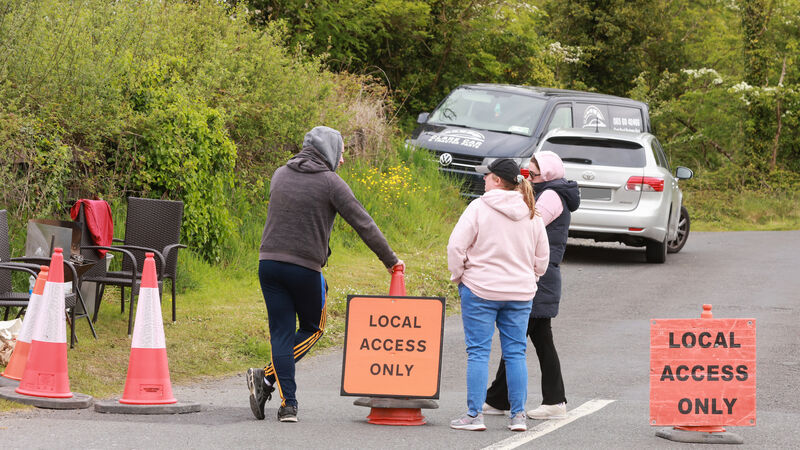Retired Garda inspector: Far-right activity must be 'nipped in the bud' now

The turn off for Magowna Hotel in Clare, where locals set up a blockade last month in protest at the housing of asylum-seekers in the hotel. Picture: Eamonn Farrell / RollingNews.ie
Tony Gallagher could be considered a very experienced observer of the rise of the far right in Ireland given his 20 years' experience at Garda inspector rank of dealing with public order and major events in central Dublin.
The retired inspector is concerned at the increasing sight of people blocking access to roads and property and even the movements of gardaí themselves.










